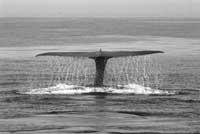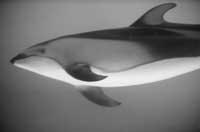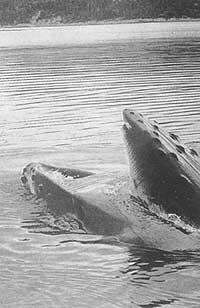Whale Hunting: Activity Whitening in the Name of Science
2002/04/07 Mendiburu, Joana - Elhuyar Zientziaren Komunikazioa
According to international regulations, only whale hunting is allowed for research purposes since 1986. But Japan has known well how to deal with this ban and, when in 1987 it launched a scientific project on whales, no one was surprised. Thus, members of the Cetacean Research Institute obtain permits to hunt whales in the Pacific Ocean, arguing that they are necessary for scientific research.
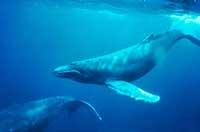
According to the Japanese, to understand the behavior of the species, at least 440 whales must be killed, which with this excuse hunt around 500 whales a year. But in Japanese behavior there are many countries that reject it and, in addition, Australian scientists have worked on the method of research of whales without death. The research is based on the analysis of whale excrement, obtaining important data: what they eat, what are the parasites of their digestive system... In addition, they indicate that to identify the whale in detail it is possible to perform a DNA analysis.
Whales are released near the ocean surface and researchers collect excrement in the nets. It has been argued that the method is cheaper and deeper than the study conducted with finished whales, so it has been presented to the International Whale Commission (IWC). By the way, their goal is to protect whales.
However, according to Seiji Ohsumi, director of the Japan Cetacean Research Institute, 2,000 whales can be hunted in the North Ocean every 100 years without harming the population. It is easy to understand that the director makes such statements, knowing that with these hunts the institute earns 15,750,000 euros annually, that is, about 90% of its budget.
Whaler in Hirado Bay
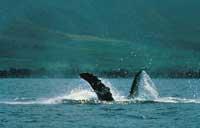
Now, to carry out its research, the Cetacean Research Institute is thinking of closing Hirado Bay in southern Japan and introducing hundreds of whales into it. They would close the bay with giant nets and do not rule out the placement of traps for the capture of free whales. The nursery would also have a research space and facilities where tourists can make visits.
According to the Institute, the aim of the research will be to define the breeding process of whales and eating habits, so that henceforth, like other fish, whales grow. According to the director of the institute, creating this nursery is making the dream come true.
But not everyone has seen the project with good eyes. For nature lovers it is clear that this project has no scientific interest. Whales are migratory fish, so it is impossible to analyze their behavior in a closed place. According to them, the nursery's real interests are to reduce international criticism of Japan for whaling and to market whale and meat juice on a large scale.
Hunting legalization application
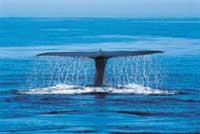
Although many countries criticize whaling, Japan is not the only country in favor of whaling. Norway, Iceland and Greenland are also in favour of withdrawing the moratorium on whaling. Japan demanded last year the right to hunt Bryde's whale, twice as high as blue. The International Whale Commission did not give her consent and yet Japan became deaf ears and began hunting Bryde's whale. Norway has claimed the right of the UN to export the whale and Iceland and Greenland, arguing that blue whales have grown a lot, have asked a question to re-hunt. The UN has rejected all requests, but we will have to see how long it will maintain this position. In fact, there have been rumors that Japan has bought some members of the commission to vote in their favor.
Published in the supplement Estación de Gara.

Gai honi buruzko eduki gehiago
Elhuyarrek garatutako teknologia




